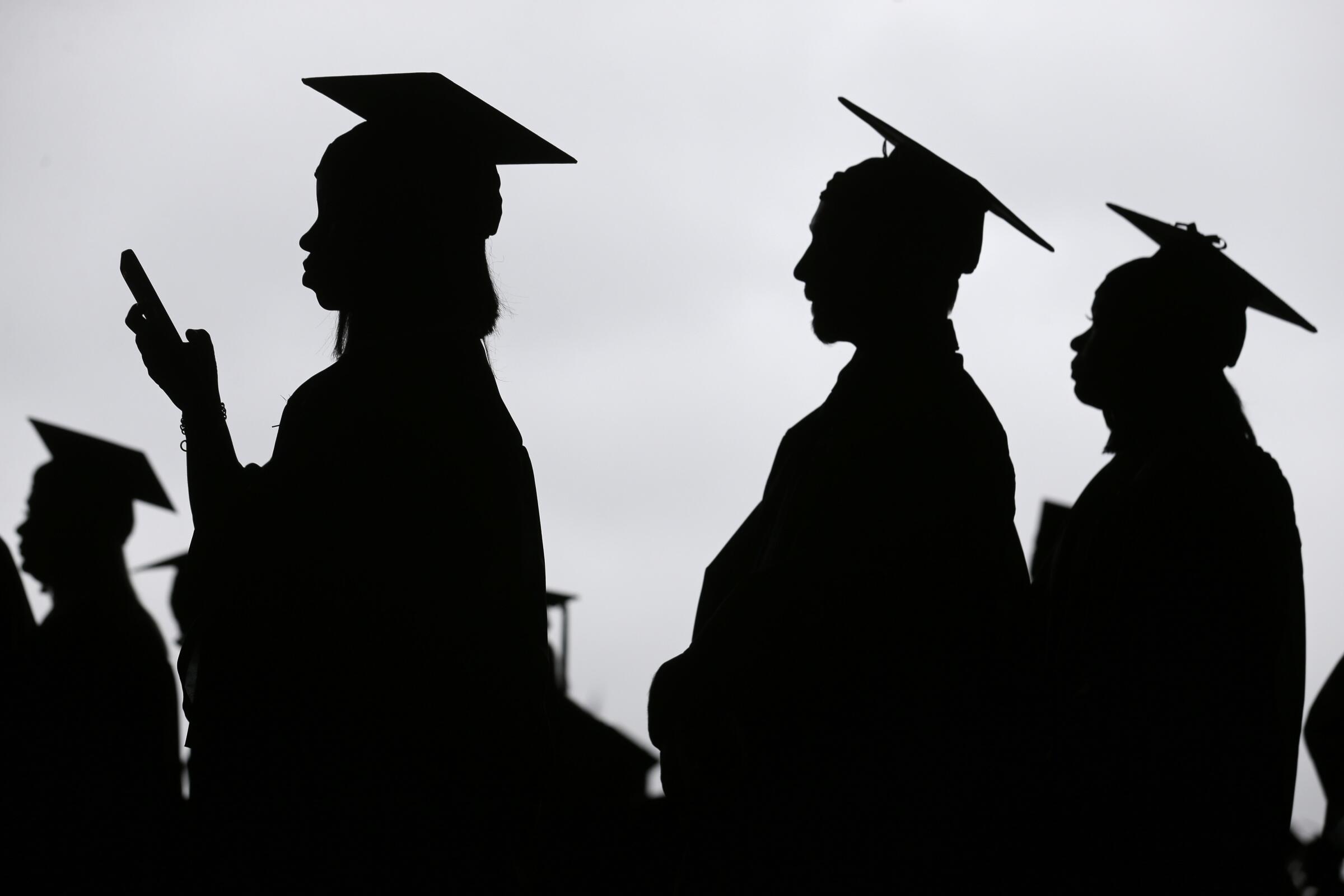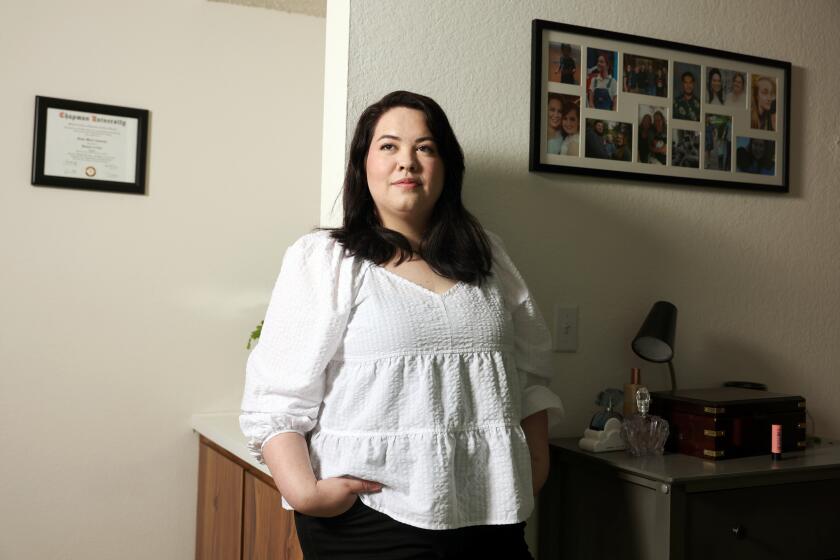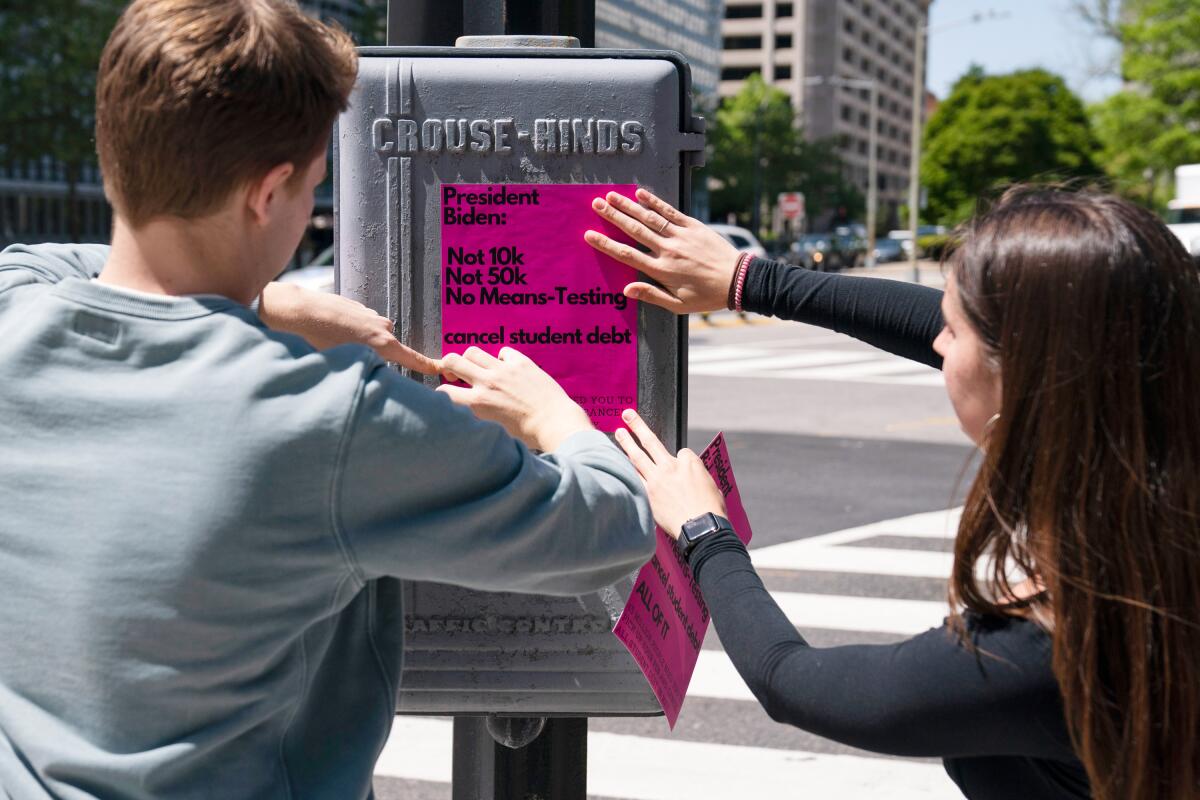It’s frequently been argued that the mountain of student debt has hurt the housing market. The National Assn. of Realtors, in a 2017 study, reported that the financial burden was such that younger borrowers delayed home-buying by several years.
To be sure, without student loans to pay back, people would have more money to save for a down payment. How much overall debt one has relative to income also is a factor in qualifying for a mortgage. And those who have defaulted on student loans — about 1 in 6 borrowers — will see a hit to their credit scores.
Still, experts say it’s hard to prove there’s a causal relationship between home-buying and people who have student debt versus those without it. And other research suggests that over time homeownership rates of college graduates with and without student debt are not significantly different.
But it made a difference to Grace Poulos, 24, who earned a bachelor’s degree in international politics from the University of Tampa in May 2020. She borrowed $26,000 in federal loans and figures she would have been repaying about $250 a month had it not been for the moratorium.
After college, Poulos moved back home in the Chicago area. Living rent-free with her family, she worked part-time and managed to save about $10,000. Last summer, she got a job as a data and policy analyst for a nonprofit in Tulsa, Okla., with a salary of $40,000. And in July 2021, she put down $6,000 on a $150,000 townhouse in downtown Tulsa.
Poulos said she would have qualified for a mortgage even if she had been paying back her student loan, but she’s not sure she’d have enough monthly income to meet her payments.
Currently her monthly expenses include about $880 for housing and $200 for a car loan. After paying for groceries, utilities and other bills, Poulos says, she may have $100 to $150 left over every month.
“I wouldn’t have any wiggle room for student loans,” she said.











